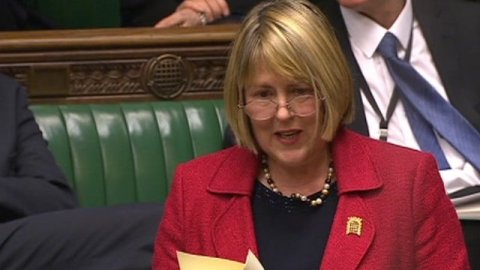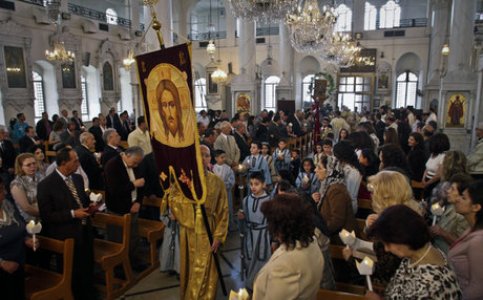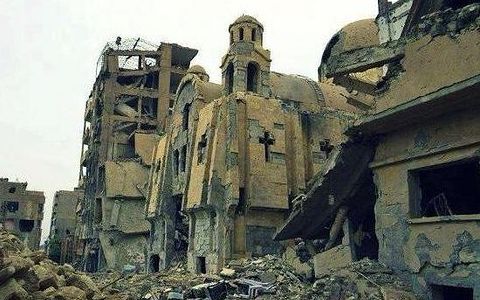Christian genocide: pressure for action grows following UK vote
by - 11th May 2016
 PRESSURE is increasing on the British and American governments to aid minorities in Iraq and Syria following official recognition of the genocide committed by Islamic State.
PRESSURE is increasing on the British and American governments to aid minorities in Iraq and Syria following official recognition of the genocide committed by Islamic State.
Nina Shea, Director of the Centre for Religious Freedom at the Washington-based Hudson Institute and an expert on IS and Christianity, told Lapido she is trying to convert momentum from historic votes in both US and UK into action by the US government.
The UK Parliament’s House of Commons on 20 April voted 278-0 to declare IS’s actions against Christians genocide, although the government opposed it, urging MPs to abstain on legal grounds.
Shea said the US should encourage and support four main policies to aid members of groups affected by the genocide, based on basic principles of international law, such as the Universal Declaration of Human Rights and the Genocide Convention,
'Firstly, refugees and IDPs (internally displaced persons) from the genocide should be entitled to equal rights of citizenship in Iraq and Syria allowing them to rebuild their lives,' she said.
‘Their property and persons must be protected and they must have equal rights before the law and religious freedom.’
‘They should under no circumstances be forced to live under any system whereby they would be treated as second class citizens or dhimmis.
‘This should be a focus of US economic aid incentives and economic sanctions.’
Ensuring equal rights of citizenship was especially important for Iraqi IDPs living in Iraqi Kurdistan, Shea explained.
‘Their prospects of returning to Nineveh are poor and they have no refugee rights to resettle in the west because they're not refugees.’
Additionally, the US should rectify earlier mistakes to resettlement policy and admit more people from affected minorities into the US, especially Christians.
Furthermore, refugees and IDPs must be given a full ‘right to return’ to their homelands and receive priority reconstruction aid if they chose to do so.
Finally, the US should immediately start gathering and preserving evidence of the genocide for eventual prosecution in court, Shea added.
Vote
The Commons debate in April called for the government to make an immediate referral to the UN Security Council.
The referral would lead to jurisdiction transferring to the International Criminal Court so that members of IS could be prosecuted.

Member of Parliament Fiona Bruce who proposed the motion successfully argued that the ICC cannot make a judgment on whether violence amounts to genocide unless nations ask it to do so.
‘That is why supporting this motion is so important,’ she told the debate.
In March the US secretary of State John Kerry said that atrocities committed against minorities constituted genocide following a unanimous vote in the House of Representatives.
The European Council, European Parliament and Australian Parliament have also recognised the genocide in the Middle East.
Action
For many however, the recognition of genocide is just the start.


John Newton, a spokesperson for Aid to the Church in Need, a Catholic charity that provides support to oppressed Christians around the world, told Lapido that governments must move from words to deeds.
‘The vote to recognise IS’s actions as genocide needs to lead to concrete action.’
‘So far we haven’t really seen any concrete steps taken by the international community.’
Following the UK Parliament’s vote, he said, the British Government’s reaction had been mixed.
Although it had been gathering evidence of war crimes and genocide to be used in the future by judicial bodies, it had yet to make a referral to the UN Security Council.
Prevention
Newton also said that prevention of genocide was just as important as punishment for the perpetrators.
‘A lot is being said about punishment, but prevention is just as important an issue.’
‘A priest from Aleppo told Aid to the Church in Need that last Sunday – which was Easter for the Eastern Orthodox and Eastern Catholic Churches in Syria – very few people turned up to services.
‘Many were too busy burying their dead, others were fleeing the city.
‘Aleppo’s Christian quarter is still being targeted by extremist Islamist groups.
‘While ACN and other charities are helping to provide food, shelter, medicine and other vital aid, the international community must do more to help those minorities being targeted because of their faith.’
Christianity
Despite the recognition of the plight of Christians in Syria and Iraq there was a lack of understanding of just how grave the situation was, said Newton.
‘Targeted attacks on religious minorities needs to be taken more seriously, these groups [IS and Al-Nusra] want to wipe Christianity out of the Middle East.’
In the first half of the 2016 financial year only 0.7per cent of Syrian refugees resettled in the US have been Christian despite Christians constituting ten per cent of Syria’s pre-war population.
During the Syrian civil war IS has tortured and killed Christians, destroyed and desecrated churches and cemeteries, assassinated church leaders, forced conversions, and compelled thousands of Christians to flee their homes.
Over the past few years the number of Christians has fallen from two million to less than one million in Syria, and from 1.4 million to fewer than 260,000 in Iraq according to estimates by AFD International, a legal organisation that campaigns for freedom of religion.
